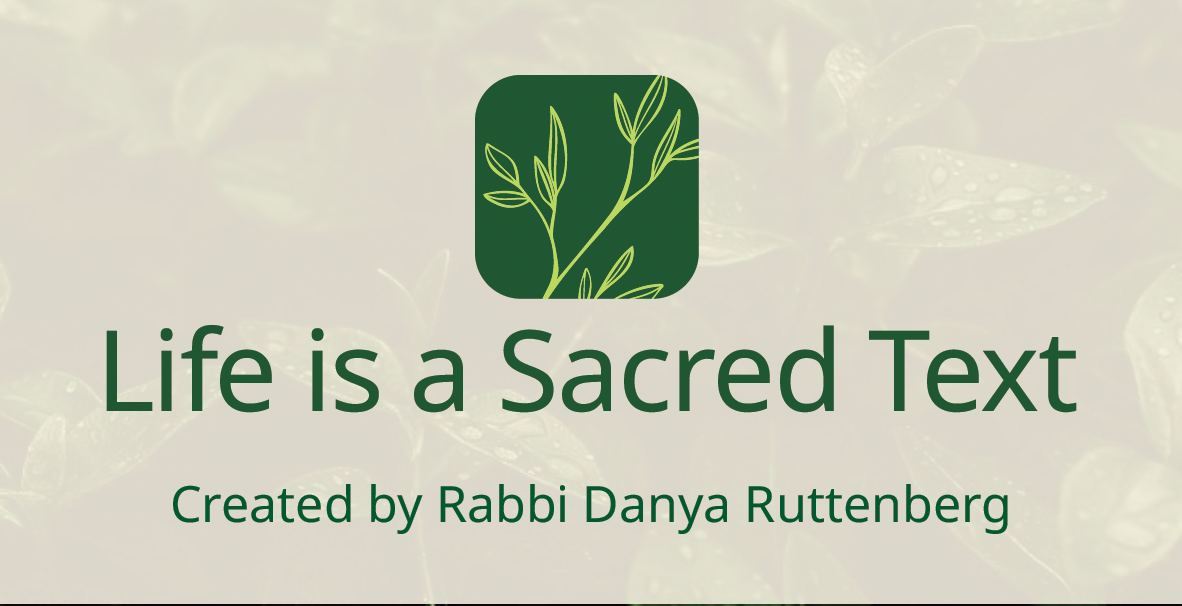read this instead
good things for brainmeats and heartbeats

Welcome back to our semi-occasional feature that will now maybe officially be called, "Read This Instead."
Because there's so much important work out there! And yeah, "read this" this might include some watching or listening or viewing or (etc) recs, but it's just about making sure I periodically take time to wave great things in your faces now and again– no?
First off: time-sensitively, I learned late last week that a ton of organizations that I know pretty well and
https://www.timeisnow.co.il/english
First of all, and most importantly:
As we have journeyed almost all the way through the Book of Numbers, as we see the Israelites perched on the edge of the Promised Land, poised to enter to– well, conquer it.
As you may remember, we have debunked the Conquest Narrative from a historical perspective, shown that it's unlikely that the events described in Numbers, Deuteronomy, Joshua ever actually happened as described. That, most likely, the Israelites were originally, well, Canaanites. And that these stories about conquest were created to serve political purposes, as so many national stories are.
However.
Even when we unpack its history, we are not free from engaging with the impact of the narrative itself. And to that end, I would like to direct you to the Osage theologian and scholar Robert Allen Warrior's classic 1989 essay, "Canaanites, Cowboys and Indians: Deliverance, Conquest, and Liberation Theology Today."
He's speaking to a Christian audience, so those parts of the piece may resonate more for some of you than others, but I personally believe that this piece should be required reading for anyone who engages with these biblical narratives.
A delivered people is not a free people, nor is it a nation. People who have survived the nightmare of subjugation dream of escape. Once the victims have been delivered, they seek a new dream, a new goal, usually a place of safety away from the oppressors, a place that can be defended against future subjugation. [The people of] Israel’s new dream became the land of Canaan...[God] the deliverer became [God] the conqueror.
The obvious characters in the story for Native Americans to identify with are the Canaanites, the people who already lived in the promised land. As a member of the Osage Nation of American Indians who stands in solidarity with other tribal people around the world, I read the Exodus Stories with Canaanite eyes. And, it is the Canaanite side of the story that has been overlooked by those seeking to articulate theologies of liberation. Especially ignored are those parts of the story that describe [God's] command to mercilessly annihilate the Indigenous population. To be sure, most scholars, of a variety of political and theological stripes, agree that the actual events of Israel’s early history are much different than what was commanded in the narrative. The Canaanites were not systematically annihilated, nor were they completely driven from the land. In fact, they made up, to a large extent, the people of the new nation of Israel... [However,] people who read the narratives read them as they are, not as scholars and experts would like them to be read and interpreted.... The narrative remains.
I will be the first one to acknowledge: He is asking some difficult theological questions for Jews. Some Jews may experience them as existentially difficult. But I continue to stake it all on the principle that we can only find our way by telling the truth, telling all the truths, hearing all the questions. Not: Refusing to look, see, hear, be willing to understand because the implications are too threatening.
Anything worth keeping can withstand the scrutiny. The turning, and turning, and turning again– the shaking hard, the bringing up close with a magnifying glass. If we're afraid to entertain the questions, what does that say about the strength of what we've got? Nah. Bring all the truths on, and let the hard questions take us to the next level of wherever it is that we're going in this journey of collective liberation together.
Read the whole piece here.
It might be a good cocktail together with this, from Professor Emily Fuller, a scholar of Jewish philosophy and ethics:
I think that this willingness to dwell in the texts in question, without denying their plain sense, is a virtue in itself; the ability to look squarely at the passage before us and see what it seems to be saying, even if we are appalled by it, is an intellectual and ethical good. But even beyond the cultivation of intellectual honesty, it’s still insufficient to dismiss invocations of biblical violence as simply irrelevant, ahistorical, or misinterpreted.... if we want to determine what it means to us, to belong to a tradition that has such texts in it, we might start by looking them squarely in the face.
Here's something I just thought was beautiful:
A Lesson from God in Trans Visibility by Lexi Kohanski in Gashmius Magazine:
The point is not the product. Just as the adornments of the Mishkan aren’t for us to look at, so too the way a trans person styles and changes their body is not, at its best, about looking good, or legible, or “right.” Just as the point of the Mishkan is not the product but the Presence, so too transition should not be about arriving at the goal of gender; it should be about using gender to build our bodies and our selves into vessels that can reflect just a little bit more of the light of Hashem [/God] with which the world was created. ... When trans people become visible, what do you see? Do we confront you with illegibility, the frustration of an unanswerable question—or with a mystery that reverberates with echoes of the Clouds of Glory? Listen: we don’t construct our bodies so we can look at them—we do it so that the Presence of God can shine mistily from within us.

Some of you may already know about this next one– "Meeting the Man"– but some of you may not:
I saw this a few years ago and was given cause to think of it recently. It's a short documentary of the legendary James Baldwin (who, if you haven't read him, well, do that first. Don't worry, we'll wait). It is 27 minutes of Baldwin fighting to bear witness to the racism of the United States and presumptuous white filmmakers trying to push him to Perform Writer (until they finally shut up long enough to start listening); Baldwin is fiery, urgent; prophet and preacher.
He says at one point,
"I've had a hard life, you know, but my dear, really. I would not be a white American for all the oil in Texas. I really wouldn't have liked to have to live with all those lies.... You can't help but feel that there is something that you can do for me, that you can save me. And you don't yet know that I have endured your salvation so long I cannot afford any more, not another moment of your salvation.
Later, much later:
There may not be as much humanity in the world as I would like to see, but there is some – there's more than one would think, in any case.... Love has never been a popular movement ... The world is held together– really, it is held together– by the love and passion of very few people.
To my absolute delight, the children's book author Kyle Lukoff reached out to me and told me that he wrote a picture book based on On Repentance and Repair. I have had the honor of seeing the whole thing, even though it's not shipping until August. It's great. It's delightful. It's about getting to the root of the thing. You can preorder here.

Are you in need of an immersive tabletop roleplaying game for learning Biblical and Rabbinic Hebrew? Or drop-in Torah learning? Check out this emerging project. And there's always Svara, Shel Maala, and Judaism Unbound doing cool stuff, too. (And all the other resources that still live here.)

And, lastly, some of you may be glad to know about Kobra Olympus, the trans lesbian Muslim superhero who battles robots and makes queer friends in Issue #2: Robot Rumble! The Kickstarter has already been met with plenty of time to go, so I'm only sharing in the spirit of, "Bet some of you have been waiting for something like this since forever." You can get a digital version starting at $2! More here.

That's it for this edition! As always:
A reminder about this subscription model:
I want my work to be as accessible to as many people as possible, in as many ways as possible. That's why the Monday essays are free, and why we donate subscriptions to anyone for whom paying is a barrier to the House of Study posts.
I also believe people should be paid fairly for their work. Needless to say, these two values sometimes seem to be in conflict, but I do what I can to find a fair balance. I offer many resources for free, and charge for others. When you donate generously or pay at the top of our scale, that helps support the work I do, provides access for those who have fewer resources, pays for the infrastructure and the technical and practical support that it takes to do this, and helps us keep the work sustainable. ❤️ 🌱

